A famous management consultant, Peter Drucker, says you can’t improve things you can’t measure, and it can be applied to any business step, including competitive analysis. The data-driven monitoring lets you get inspired by your competitors and stay ahead of them.
However, keep in mind that inspiration and integration isn’t enough. You need to have a solid foundation for your business website. That’s where providers like Hostinger hosting come in to help.
Having reliable uptime and a fast server response time will help put your best foot forward. Additionally, make sure your site is secure. The bare minimum – an SSL certificate – can be acquired for free thanks to companies like Cloudflare.
Let’s go through a list of competitor analysis tools for your digital marketing strategies and what kinds of insights they offer.
1. Awario
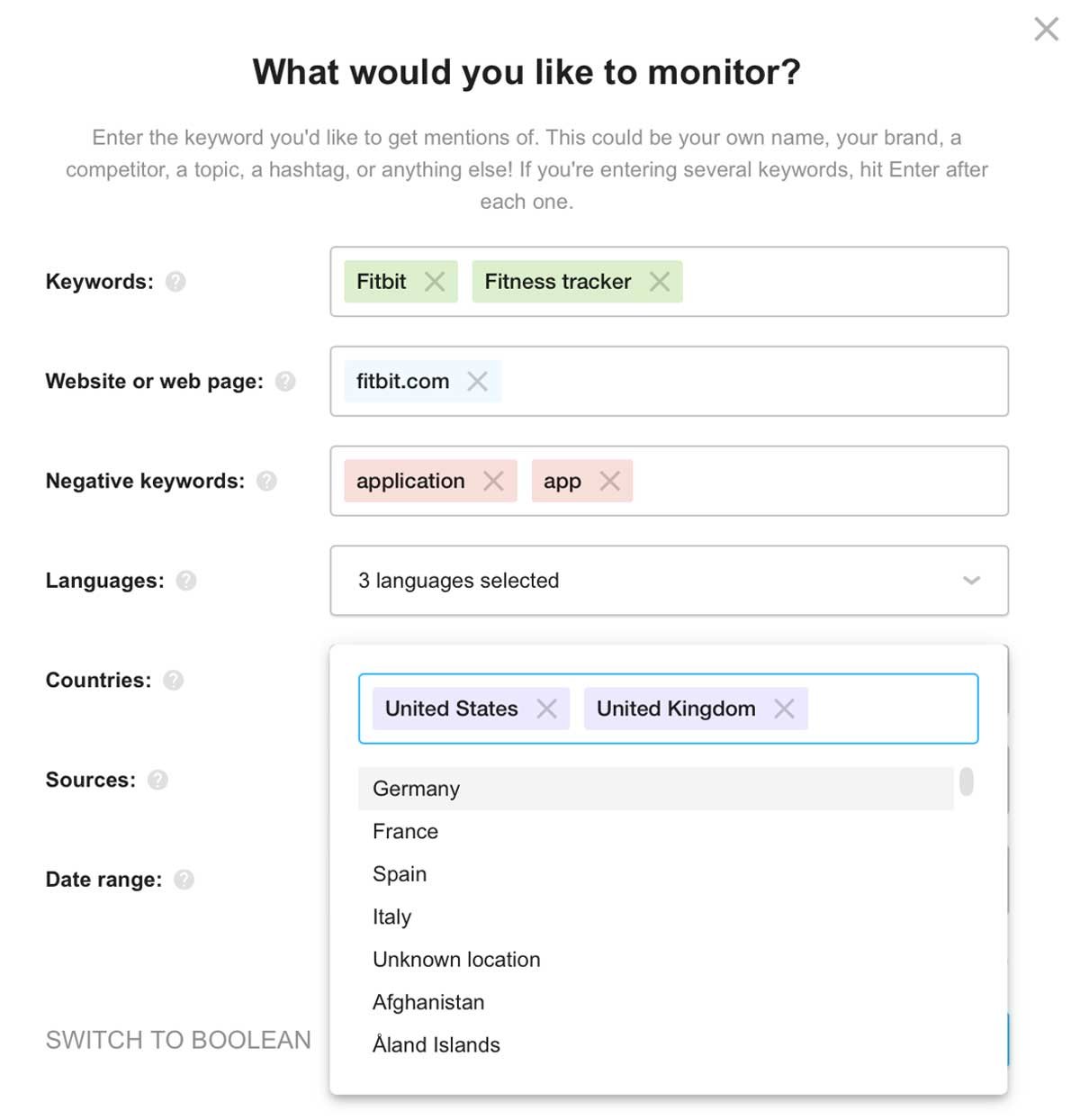
Awario is a social listening tool that works on many platforms, including Twitter and Reddit. It notifies you about people talking about your business, so you can join the conversations immediately.
Key features:
- Monitoring alerts. Lets you get ahead of the mentions in real-time regarding your brand and competitors using specific keywords.
- Social selling. Collects posts asking for a recommendation of products or services similar to yours.
- Influencer insights tool. Identifies relevant people in your industry across social platforms and figures out which influencers mention your competitors.
Pricing: Paid plans $24/month.
2. GTmetrix
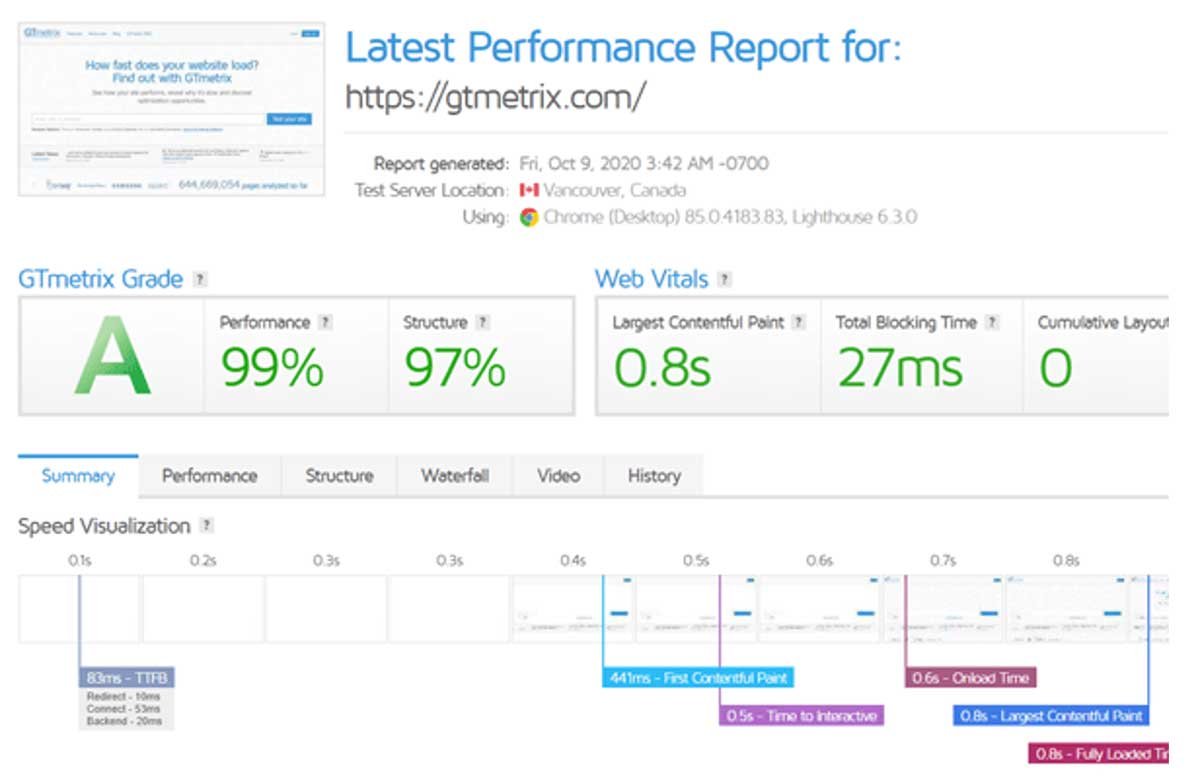
GTmetrix is a website speed test tool which is powered by Google Lighthouse. Type your domain name or add your competitors’ for comparison. Sign up for the free account to track your progress.
Key features:
- Comprehensive grading and scoring. From websites’ overall performance – grade A to F – to site structure and core web vitals The analysis is based on various factors, like speed index and layout shift.
- Insights to tweak the performance. GTmetrix doesn’t only point out the issues but also the causes and helpful tutorials to solve them.
Pricing: Free, paid plans start from $10/month.
3. Unmetric
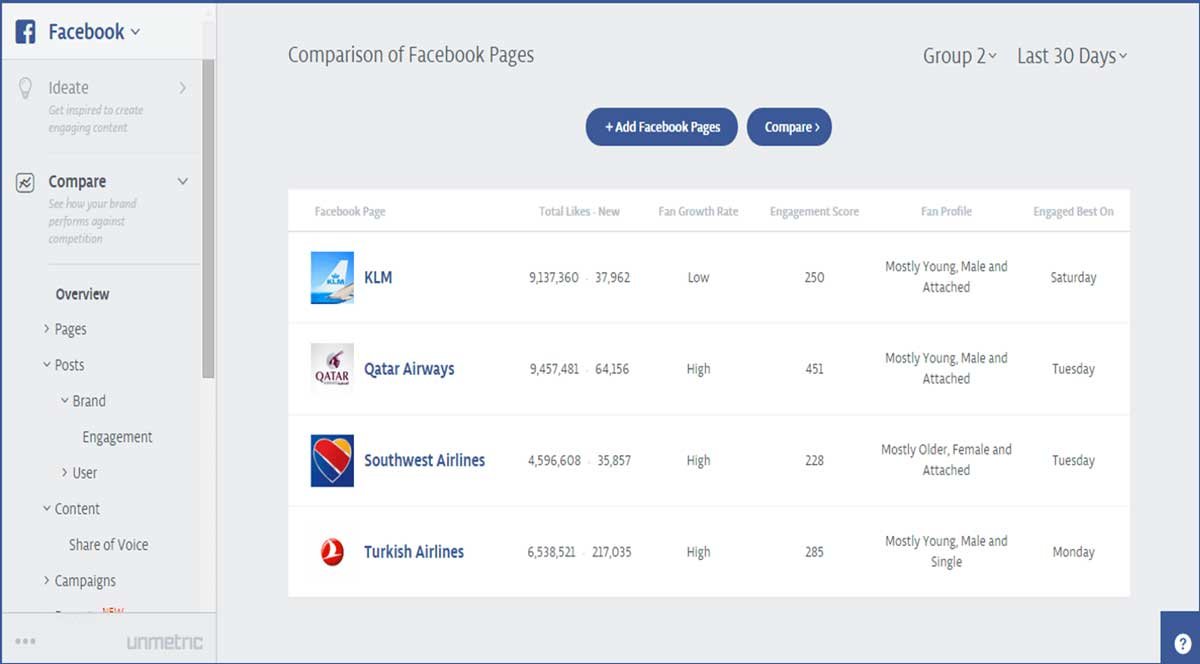
Compared to Awario, Unmetric brings competitive analysis into the enterprise level. This tool performs automation with its artificial intelligence (AI) named Xia.
Key features:
- Engagement worth. Tells you how much the dollar value you’re earning for each post.
- Post detection. Identifies paid and organic content from your competitors to know their campaign focus.
- Content database. Helps you search posts based on specific events, like Mother’s Day and Christmas, in the last seven years. The database consists of the posts’ hashtags, keywords, and visual elements.
Pricing: Free, paid plans start from $300/month.
4. SimilarWeb
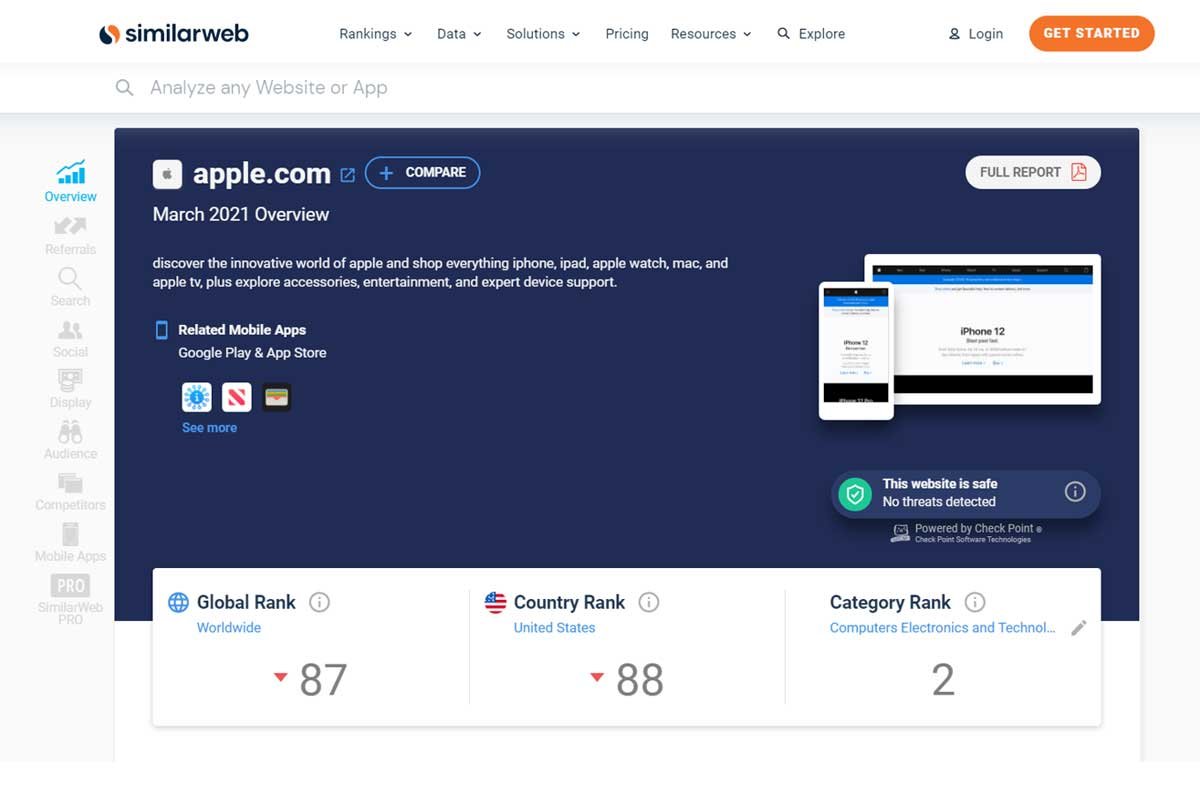
SimilarWeb is useful for website traffic research. It analyzes any website and iOS or Android app and benchmarks their performance.
Key features:
- Complete traffic analysis. Consists of the site’s global, national, and category ranks, traffic sources, audience interests, and similar data. SimilarWeb also gives you engagement insights, such as average visit duration and bounce rate.
- Categories and localization. Once you enter the homepage, the site detects your location and presents top sites in your country based on categories, like travel and finance.
Pricing: Free, custom-paid plans.
5. Buzzsumo
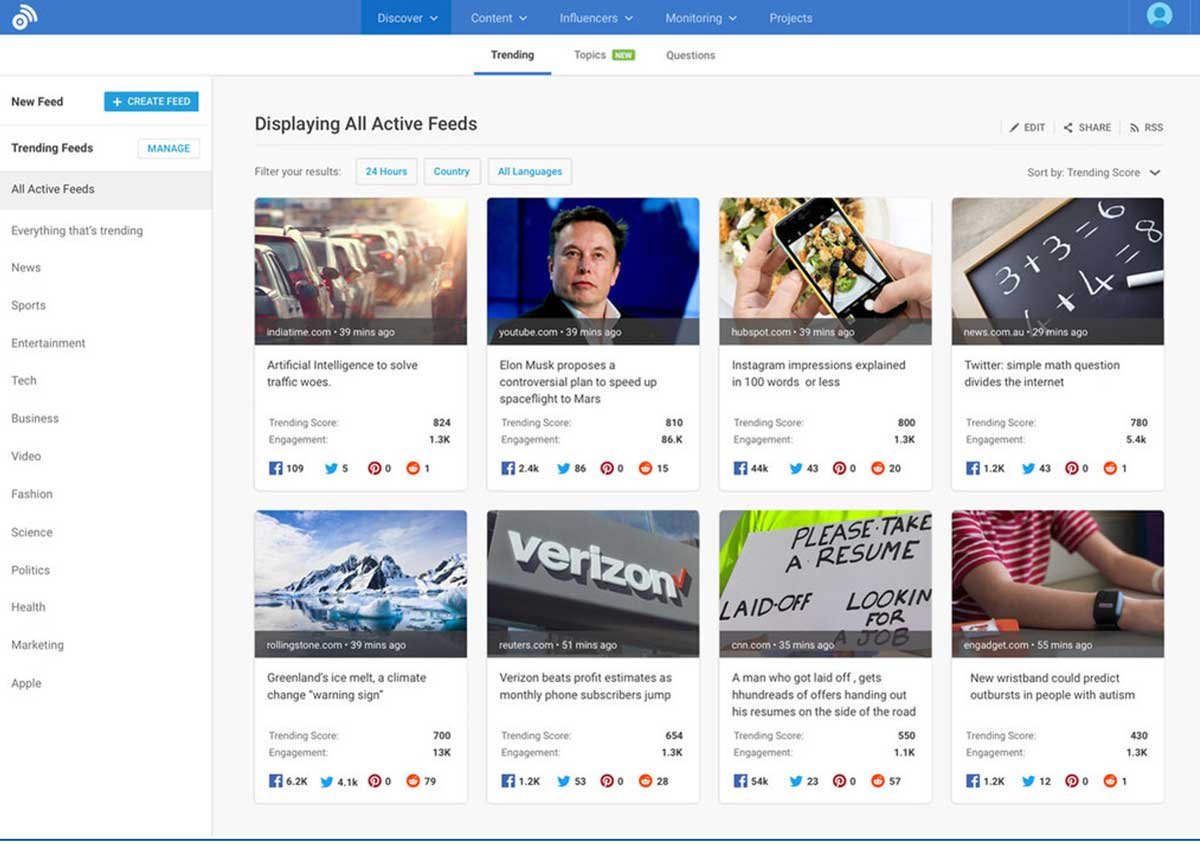
This tool helps generate content strategy ideas and analyze performance – whether your competitors’ or yours – on websites and social media.
Key features:
- Content strategy. Discovers top-class content with the highest engagement from your competitors or on particular topics. It also filters the content by periods, social networks, authors, and types.
- In-depth competitor analysis. Look over your competitors’ content performance, including the formats, length, and publication dates. Moreover, Buzzsumo informs you about competitors’ errors to prevent you from doing the same.
Pricing: Free, paid plans start from $99/month.
6. Google Trends
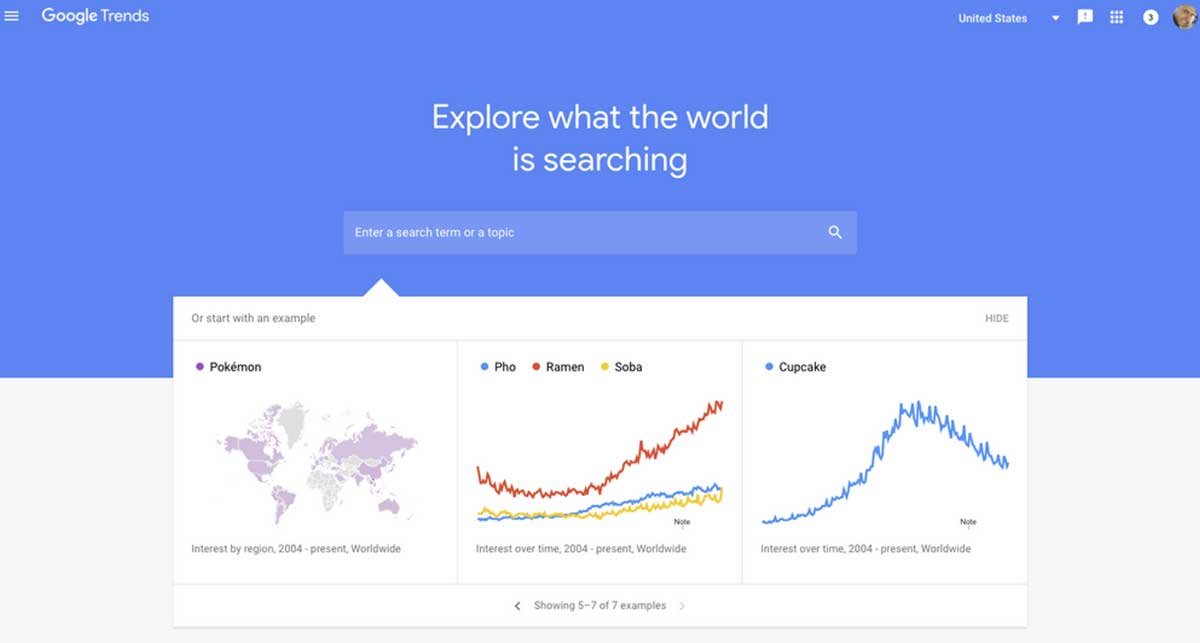
Google Trends provides the freedom to monitor both your brand and competitors’ activities on websites and YouTube. You can filter the insights based on the regions, periods, categories, and types of searches – image, news, or YouTube.
Key features:
- Search term and brand comparisons. Enter a topic or brand name, and then it shows a graphic representing search interest, related topics, and queries to determine what consumers are looking for.
- Explore trends. Notice trending searches in your country or during certain periods.
Pricing: Free.
7. Fanpage Karma
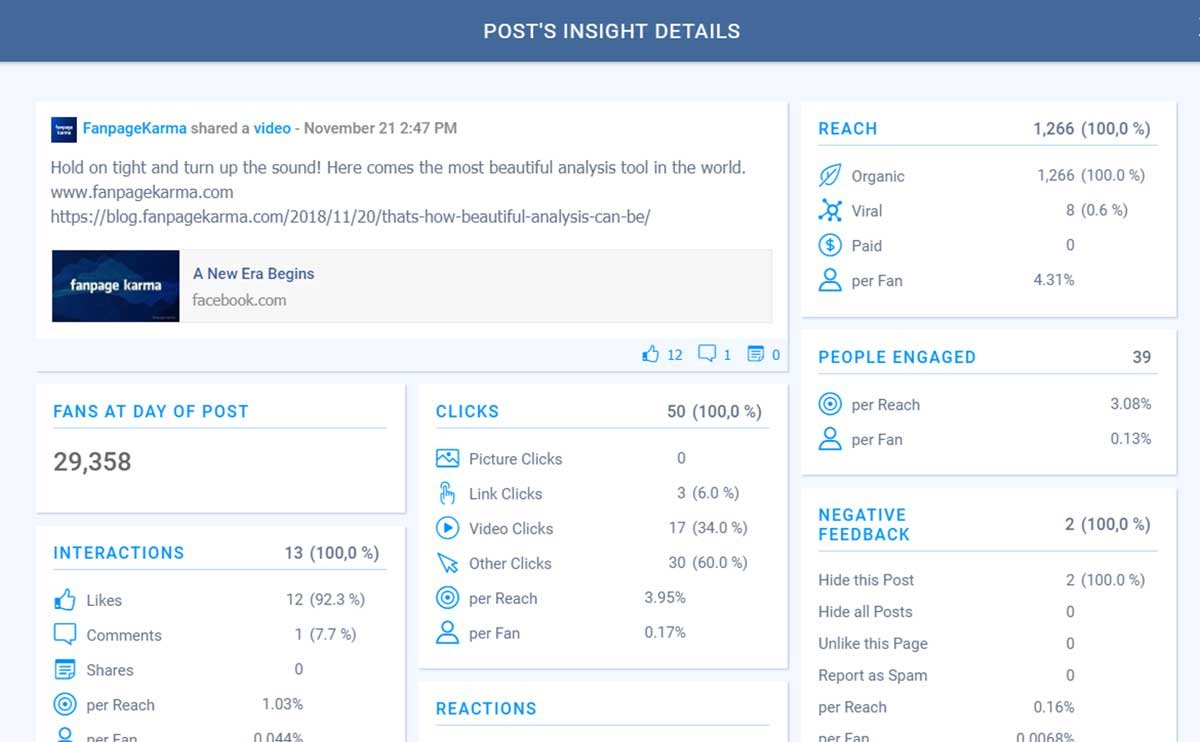
Fanpage Karma focuses on analyzing competitors’ social media behavior and controlling social media management.
Key features:
- Thorough profile analysis. Gives you real-time insights about your competitors’ social activities, such as posting schedule, reach, and engagement. The metrics may inspire you to try similar campaigns.
- Communication platform. Acts as one inbox for tracking consumers’ comments, direct messages, and mentions.
- Editorial planning. Allows you to plan content for all channels with team members and post it automatically.
Pricing: Free, paid plans start from $69/month.
8. Socialinsider
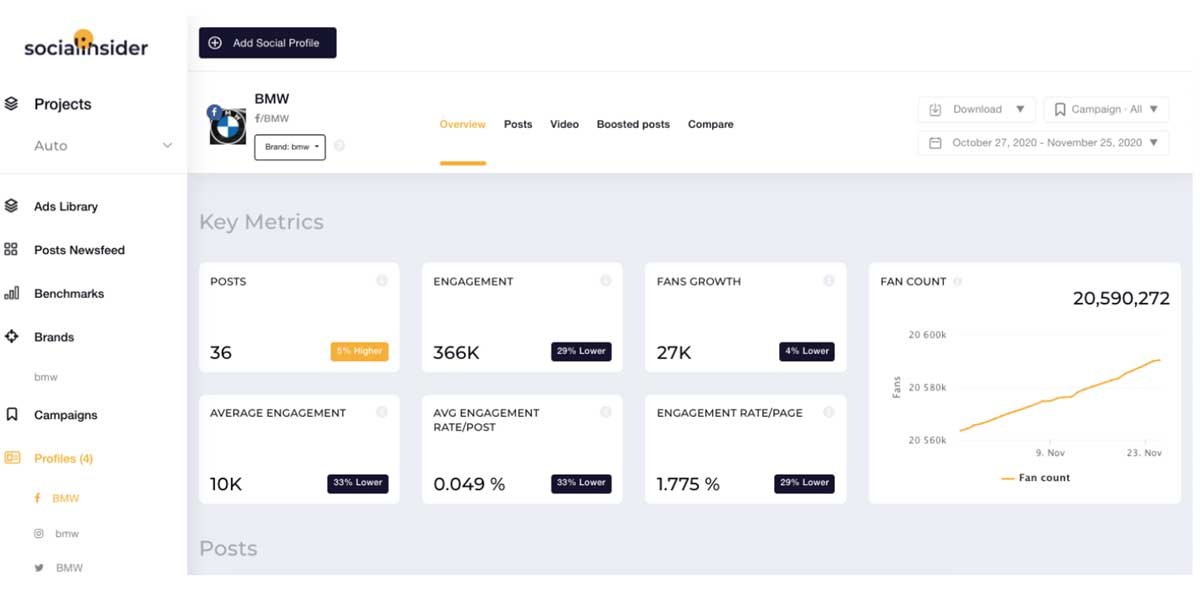
This competitor analysis tool covers Facebook, Twitter, YouTube, and Instagram – Instagram Stories are included.
Key features:
- Competitor growth analysis. Reports 12-month competitors’ historical data for each social platform, including followers, impressions, and engagement growth.
- Automated reports. Visualizes the statistics for presentation-ready reports in the form of PPT, PDF, or CSV exports.
Pricing: Paid plans start from $99/month.
Conclusion
Competitor analysis is a business process you shouldn’t skip. Leverage the analysis tools above to help you keep pace with the ever-changing market trends and be one step ahead of your competitors.












